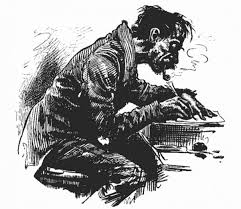I’m taking a sabbatical from teaching, but since it is a self-imposed sabbatical and not a real sabbatical in the academic sense I choose to call it “retirement“, a word which makes my husband crinkly, both from lack of income and from sheer finality of it.
He worries that my vision of it is this.
Sabbatical or a sabbatical (from Latin sabbaticus, from Greek sabbatikos, from Hebrew shabbat, i.e., Sabbath, literally a “ceasing”) is a rest from work, or a break, often lasting from two months to a year. The concept of sabbatical has a source in shmita, described several places in theBible (Leviticus 25, for example, where there is a commandment to desist from working the fields in the seventh year). In the strict sense, therefore, a sabbatical lasts a year. Some universities and other institutional employers of scientists, physicians, and/or academics offer the opportunity to qualify for paid sabbatical as an employee benefit, called sabbatical leave.
While I think of my vision of retirement as
My college is not offering a sabbatical leave, nor did I request one. The goal is to spend more time on my own work (many months had passed since I had written a poem) and spend more time with my two young children while traveling with husband. Much of November will be spent in Boston.
Did I mention there are 606 emails in my inbox? 206 of which are unopened.
Today was officially ‘day one’ of my-so-called-retirement (the phrase husband affectionately uses).
As you suspect, there was some sleeping late (I had to live up to husband’s vision just a bit)… then…
I realized that having spent 5 years in the classroom AND raising the children AND managing a house and rental properties AND freelance writing and editing that I’ve done a rather shitty job of all (teaching the exception) so today is all about personal/household management.
Today’s goal is to go from 606 inbox emails to 400. There are 206 purposefully unopened, unanswered emails (that I don’t want to open due to subject title), and I’m going to answer today (though many will begin with… “I am so sorry to not get back to you sooner…”). Most are difficult topics to tackle (sister and mom related, friends in Boston who are struggling emotionally, telling writers that I can’t/won’t edit their new work and why)
Later this week I hope to actually schedule my 2 year overdue mammogram, find my driver’s license, get the dogs their shots (also 2 years overdue), get an eye exam (5 years was last one and I can barely see to drive), a pap smear (3 years overdue), and find a contractor for our sagging roof before we have a leak.
Next week is firewalling for writing projects.
Yours in productivity,










